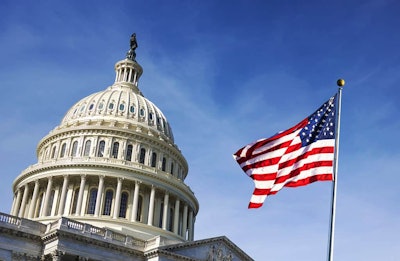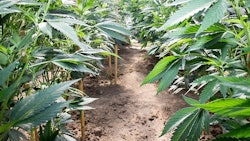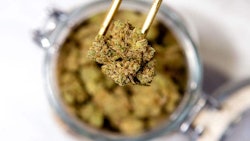
U.S. Sen. Rand Paul (R-KY) introduced the Hemp Economic Mobilization Plan (HEMP) Act of 2020 on Dec. 15 to address common concerns in the hemp industry.
Hemp advocates have long argued that the tetrahydrocannabinol (THC) threshold of 0.3% for hemp was too stringent and that testing timelines were infeasible. Farmers, processors, and other people engaged in the hemp market also faced problems with their crops' seizure by law enforcement and a lack of discretion regarding hemp that tested above legal THC levels.
Paul's legislation would address each issue. The HEMP Act would raise the legal threshold for THC to 1% and only require testing the final hemp-derived product instead of the current standard to test the hemp crop no more than 15 days post-harvest. The bill would require hemp shipments to include a copy of the seed certificate showing that the crop complies with THC standards to avoid being mistaken for marijuana and seized. The legislation would also set a clear margin of error for hemp THC testing to protect against crops' improper destruction.
Paul, an early advocate of hemp, argued that his bill would "help this growing industry reach its full economic potential" by preventing "the federal government from weighing down our farmers with unnecessary bureaucratic micromanaging."
Many industry and advocacy groups support the legislation, including Vote Hemp, the American Farm Bureau Federation, and the Kentucky Hemp Association.
"We are pleased that Sen. Paul has introduced the HEMP Act, which will revise the definition of hemp to 1% or less THC along with several other farmer-friendly amendments,” Eric Steenstra, president of Vote Hemp, told Hemp Grower.
Kentucky Hemp Association President Tate Hall and Vice President Jana Groda argued that the certification requirement would benefit growers, processors, and retailers. "We believe that loosening up some important interstate business requirements are a much-needed step toward more prosperous times in the hemp economy," they said in a Paul press release announcing the bill.
Vote Hemp Petitions Congress
Meanwhile, Vote Hemp is petitioning Congress to raise the THC threshold to 1%, making the case that the current threshold of 0.3% is too low, leading to a loss of many farmers' crops. Vote Hemp has long considered the THC threshold to be an essential issue for the industry. The group is planning to use its petition to "help raise awareness and build support" for Paul's bill, Steenstra added.
The petition states that "many farmers have had their crops destroyed due to the outdated definition of hemp. The hemp industry is creating good jobs in farming and manufacturing, and we need to ensure the industry can continue to grow and compete with other countries that allow higher THC levels. I urge Congress to change the definition of hemp now so that no more farmers will lose their crops."
To date, Vote Hemp has received 7,500 signatures and will formally submit the petition when Congress reconvenes next year.
























